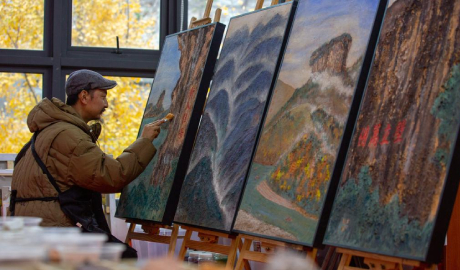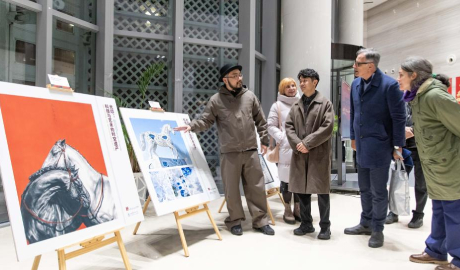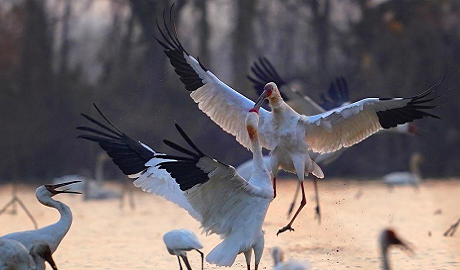

by Xinhua writer Shi Xiaomeng
MONTREAL, Canada, Dec. 18 (Xinhua) -- In holding the COP15 presidency, China has shown leadership in global biodiversity protection, Inger Andersen, executive director of the United Nations Environment Programme (UNEP), has said.
COP15 refers to the 15th meeting of the Conference of the Parties (COP) to the UN Convention on Biological Diversity. It has been deemed a landmark meeting, with delegates expected to adopt a global biodiversity deal to reverse biodiversity loss.
"China has been phenomenal," Andersen told Xinhua in an interview. China hosted the phase-one meeting of COP15 in Kunming, capital of southwest China's Yunnan Province, with the adoption of the Kunming declaration, which is a "significant push" for biodiversity talks.
Having chaired meetings concerning the UN Convention to Combat Desertification and the Ramsar Convention on Wetlands, "China is really showing leadership at the international level," she said.
"I will thank China for its leadership. I think that has been something quite remarkable in complex times," she said. "And we have seen China being very steadfast in this regard."
At home, China has done rather well under the banner of ecological civilization, said Andersen, while speaking highly of China's red-lining policy and nature conservation efforts, including bringing the panda back from extinction.
She added that China is also working diligently to cut carbon emissions and address air pollution.
In the negotiation process, many voices have been heard, including those from the private sector, the scientific sector, the financing sector, youth, indigenous people and women's groups.
"I think that having all of these voices together is really meaningful," she said. "It is a different COP. It's a moment of transformation by a broader societal approach."
As for developing countries' appeals for more funding and technical support, Andersen said it is well understood that developing countries will need help to protect their biodiversity.
"The United Nations needs to make sure that the money actually gets delivered and delivered to the people who needed the most," Andersen said.

Wuyi rock pigment painting in China's Fujian infuses modern artistic elements into tradition

China-Serbia digital art exhibition explores time, space, heritage


Exhibition of children's arts opens in southwest China's Chongqing

World's largest ice and snow theme park opens, igniting China's winter tourism fever
点击右上角![]() 微信好友
微信好友
 朋友圈
朋友圈

请使用浏览器分享功能进行分享
